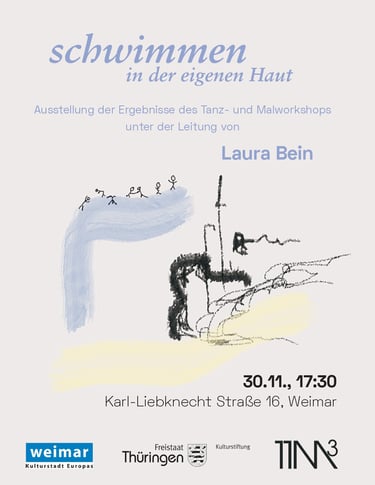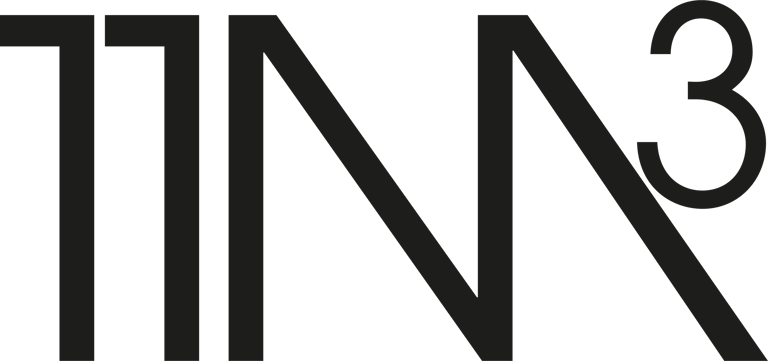AUSSTELLUNG
SCHWIMMEN IN DER EIGENEN HAUT
Ergebnisse des Tanz- und Malworkshops unter der Leitung von Laura Bein
Schwimmen in der eigenen Haut zeigt die Zeichnungen und Malereien verschiedener Teilnehmender eines zweitägigen Tanz- und Kreativworkshops, geleitet von Laura Bein. Der Workshop war offen für alle, die durch Sound, Bewegung, Stift und Pinsel zum Thema Wasser und darüber hinaus geforscht haben, um den eigenen Körper auf eine neue und spielerische Weise kennenzulernen.
Es wurden einfache Methoden aus Improvisationstanz, Contact Improvisation, Faszienarbeit sowie Malen und Zeichnen miteinander verbunden. Ziel war es, den eigenen Körper als Quelle von Wissen, Ausdruck und Verbindung zu erfahren. Wasser dient dabei als zentrales Bild und Erfahrungsmedium: Es steht für Fließen, Durchlässigkeit und Anpassungsfähigkeit.


///
Laura Bein ist Urbanistin und Medienkünstlerin.
Sie unterrichtet inklusiven Tanz, Improvisation, Contact Improvisation sowie Yoga. In ihrem Unterricht legt sie besonderen Wert auf einen somatischen, achtsamen Zugang zum Körper.



